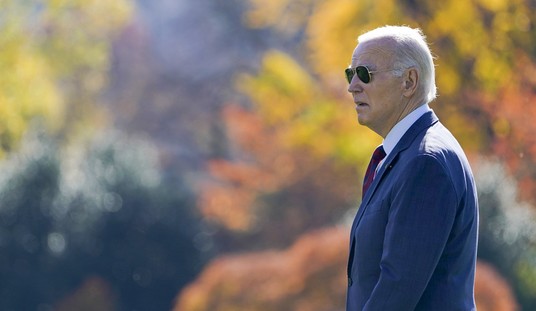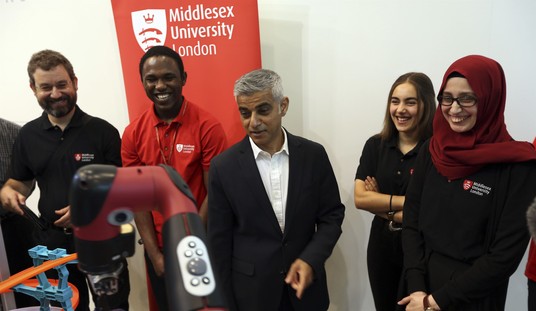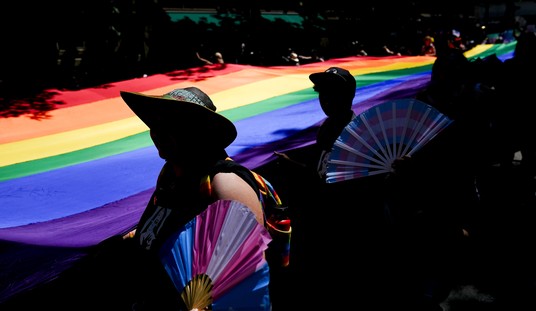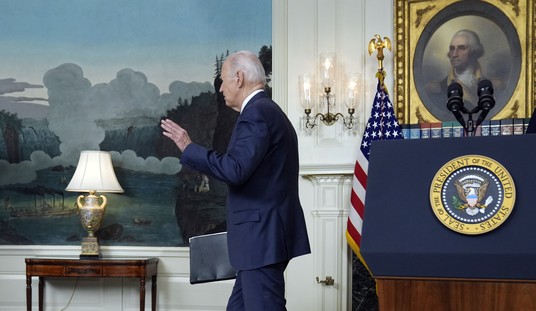The Daily Caller ran a piece this weekend by a cop who apparently works on the West Coast somewhere explaining how Ferguson has made his job more difficult because of the different ways the citizenry reacts to the police post-Ferguson. The whole article is worth reading for a cop’s perspective on what happens when the citizenry loses respect for cops. The central thesis of the anonymous police officer’s piece is that the media is largely to blame for the disintegration of respect for police.
This issue is one of the most critical issues facing the country today. Liberal fantasists like to assume that society is held together by government programs and displays of force of various kinds. The reality is that society – especially one as large as ours – is much more held together by invisible bonds of cohesion that are formed by shared assumptions and values. No amount of governmental regulation can replace these when they have dissolved. It is simply not possible, in the absence of totalitarian levels of force, for the government to effectively police a populace that has lost widespread respect for the government’s legitimacy in the first place.
This is important in all facets of civic life but perhaps nowhere is it more important than in the citizenry’s interaction with its police force. Respect for the badge and the authority it represents is necessary to avoid one of two extremes: descent into chaos or acceptance of levels of police force and presence that approach totalitarianism. So I view the complaint the officer is raising here with very significant amounts of legitimacy and alarm.
Where the piece goes awry, however, is in placing all of the blame on the media coverage of Ferguson. Definitely the media got some facts wrong in the fog of war that surrounded the first days after Michael Brown’s shooting. It is, however, likewise true that many defenders of Officer Wilson during those first days reported wildly inaccurate facts, such as falsely claiming that the protesters had killed a police officer.
More to the point, the article misses the role the cops themselves have played in these changing attitudes in America. As I’ve stated above, it’s unquestionable that police need deference from the majority of society to do their job safely and effectively – it is another thing entirely to state that police have all too often lately felt individually entitled to such deference and have been willing to use unjustified force to get it when it is not given willingly. Take for instance the recent case of Jamal Jones, who had a car window busted in his face and was tazed for not showing his ID to a cop even though he had already explained to the cop why he did not have an ID on him (he was a passenger in the car at the time).
Not to mention dozens of other similar recent incidents that demonstrate a creeping totalitarian mindset of entitlement in the minds of many American police.
Police officers may object (fairly) that it is only a small minority of cops who are guilty of these abuses of power. But one of the main problems the public has recently identified with the police is that they have developed a code of omerta that is every bit as severe as the most disciplined street gang. And this is not mere conjecture by the public – a U.S. Department of Justice Survey of police officers conducted in 2000 found that police willingness to cover for the abuse of power by other police to be pervasive and endemic. The survey noted, inter alia, that 84% of police had witnessed another cop use more force necessary than to make an arrest. 67% surveyed reported that they felt that those who reported police misconduct were likely to receive a “cold shoulder” by other officers, and 61% admitted outright that they do not always report serious criminal violations that involve abuse of authority by their fellow officers.
It is a common complaint for police (identified even in the survey above) that negative media coverage of their actions causes the citizenry to disrespect them more. It ought to be an equally common and publicly stated complaint by police that bad cops cause the citizenry to disrespect them more. Part of the frustration and disrespect people have is not from the actual abuse of authority itself but rather from the inevitable conclusion of the internal police investigation that the cops did everything right – not to mention the irrational (for good cops) hostility police have come to show towards being videotaped on cell phones during the course of interactions with the citizenry.
Officers like the one who authored this column in the Daily Caller can do little or nothing to change the media. But they can do a lot to change police culture, and their energies would doubtless be better focused in those directions. The overall health of the Republic depends on it.














Join the conversation as a VIP Member